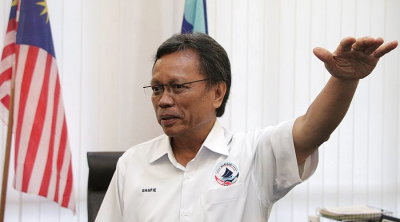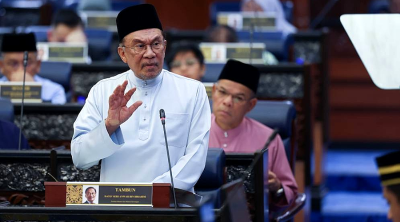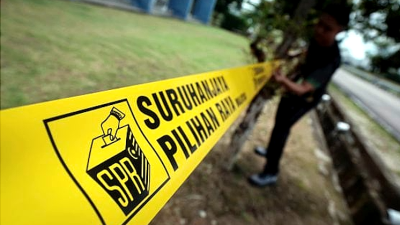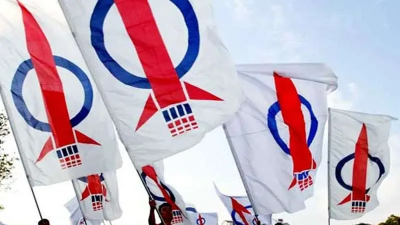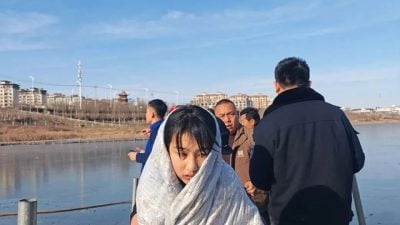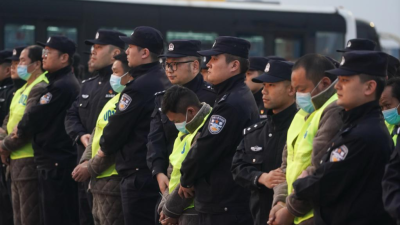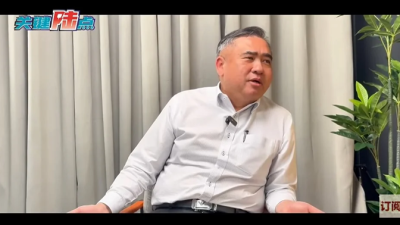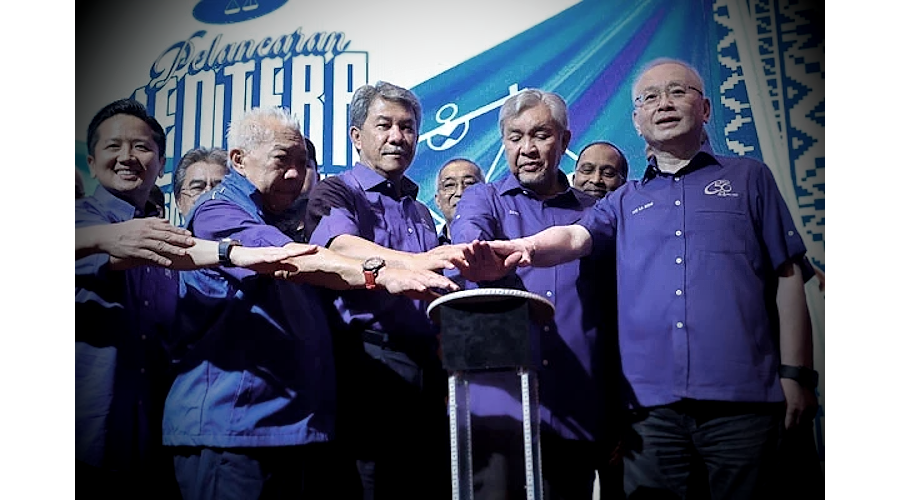
The Sabah state election is believed to be the most intense in the history of Malaysia.
A total of 596 candidates are contesting 73 state seats—an average of more than eight candidates per seat.
In the interior constituency of Tulid, as many as 14 people are vying for the same seat.
This is the fantastic nature of Sabah politics. It offers all kinds of opportunities and countless possibilities, making it a paradise for political adventurers.
Until the very last moment, no one knows where the wheel of fate will stop.
Of course, among the nearly 600 candidates, many are merely there to make up the numbers. Some are gambling for luck, while others are “arranged” by political groups to split votes.
The main competition still lies among the five major and two minor political blocs, which can broadly be divided into three “federal blocs” and four “local blocs.”
The so-called federal blocs refer to political parties from Peninsular Malaysia, as well as Sabah-based blocs cooperating with the federal government.
Three major federal blocs are:
1. GRS (Gabungan Rakyat Sabah)
GRS is the current ruling coalition. Its core party is Parti Gagasan Rakyat Sabah (PGRS) led by Chief Minister Datuk Seri Hajiji Noor.
PGRS is actually a combination of Sabah Umno and Sabah BERSATU.
Hajiji was originally from Umno. After Umno lost power, he led his faction to join Bersatu. Later, when Bersatu lost federal power, Hajiji used PGRS as a “shell vehicle” to make a comeback. He drew in various smaller Sabah parties to mimic Sarawak’s GPS and form a ruling coalition.
When Anwar Ibrahim formed the federal government, Hajiji sensed the shift in political winds and quickly pledged support to the Unity Government.
From Hajiji’s political journey, one sees his shrewdness. Wherever power flows, he flows—always positioning himself in an invincible spot.
Regardless of who rules at the federal level, Hajiji aligns with them.
From Umno to Bersatu to Pakatan Harapan—this has always been the case.
Therefore, although GRS claims to be a Sabah local coalition, many Sabahans still regard it as a pro-federal group.
In this election, GRS is again cooperating with Pakatan Harapan through seat allocations.
However, with Sabah localist sentiment running high, this trend is unfavorable to GRS. Still, GRS is well-funded, well-organized and has a strong campaign machinery, supported primarily by the Malay-Muslim base.
Contesting 55 seats, it is expected to win around twenty-something.
In the KDM (Kadazan-Dusun-Murut) constituencies, GRS initially held a big advantage because PBS (Parti Bersatu Sabah) and STAR (Parti Solidariti Tanah Airku), the two major KDM parties, were within its fold.
But after Hajiji aligned with Anwar, STAR feared backlash from KDM voters and eventually withdrew from GRS—weakening GRS’s representation in KDM areas.
Another setback for GRS is that it lacks Chinese support and can only hope to make up by collaborating with DAP.
2. Sabah Barisan Nasional
Sabah Barisan Nasional is anchored by Umno. It originally governed Sabah together with GRS, but the conflict of interests between Umno and PGRS ran too deep Sabah Umno head Datuk Seri Bung Moktar Radin and Hajiji were like water and fire.
This led Bung Moktar to launch a coup attempt to overthrow Hajiji, but the plan failed, and instead Sabah Umno split, with several assemblymen defecting.
The Umno led by Bung Moktar is now far weaker than before. On one hand, the defection of Hajiji’s faction took away more than half of the party’s strength. On the other hand, Umno has lost federal power and can no longer support Sabah Umno across the waters of the South China Sea.
Bung Moktar himself lacks leadership, which also contributes to Umno’s decline. He is entangled in corruption cases and lacks the moral authority expected of a leader. His impulsive behavior—or one might say his lack of political wisdom—has accelerated Umno’s downward slide.
The rift between Bung Moktar and his deputy, Datuk Abdul Rahman Dahlan, is an open secret.
Bung Moktar represents the grassroots faction; his rough-and-tumble style appeals to Umno’s grassroots and rural voters. However, his leadership lacks direction, his decisions lack careful thought, and his policies lack stability—all of which are heavily criticized within the party.
Rahman Dahlan belongs to the elite faction—mild in manner and meticulous in thinking. He once served as a federal minister and was well regarded. But he lacks broad grassroots support.
He was originally slated to contest in this election, but his name was removed at the last minute, showing that the election has not united Umno—instead, it has intensified internal infighting.
Sabah BN is contesting 40 seats. How many nails can a sinking ship still hold together?
It is estimated that it will win no more than 15 seats.
3. Pakatan Harapan (PH)
Pakatan Harapan has no commanding influence in Sabah. In the past, riding on the wave of dissatisfaction toward Barisan Nasional, it managed to win around ten seats—mostly relying on Chinese support for DAP.
Its main pillar, PKR, won only two seats and failed to establish deep roots in Sabah.
However, now that it holds federal power, PKR is eyeing Sabah eagerly.
This time, it is placing heavy bets, determined to expand its influence and carve out territory in the state.
On one hand, Anwar reached a seat-sharing agreement with GRS and Sabah BN to avoid direct clashes with them.
On the other hand, he is fielding elites and rising stars to seek breakthroughs.
For example, PKR has nominated Datuk Ruji Ubi—former Secretary-General of both the Home Ministry and the Education Ministry—to contest the Merotai seat.
Ruji is a native Sabahan and one of the very few Sabah elites to have reached the upper ranks of the federal civil service.
It is said that if he wins, he is already earmarked to become Deputy Chief Minister, or possibly even Chief Minister.
PKR has also fielded Datuk Yamani Hafez Musa, son of former Sabah Chief Minister Musa Aman, as a PH candidate—clearly aiming to leverage the political influence of the Musa family. However, this move has been criticized, with former PKR deputy president Rafizi Ramli calling it an example of unhealthy nepotism.
That said, PH is still viewed as an external “Malaya-based” force, which does not align with mainstream sentiment in Sabah.
Furthermore, the anti-Umno sentiment that once benefited PH is gone, leaving it without a clear opponent to attack. PKR will find it difficult to gain a foothold and DAP may lose some of its seats.
Even so, PH is campaigning under the slogan “Prime Minister Anwar Loves Sabah,” hoping to win the support of pragmatic voters through promises of stronger federal backing for Sabah.
Realistically, the number of seats PH can win is expected to be only in the single digits.
ADVERTISEMENT
ADVERTISEMENT








